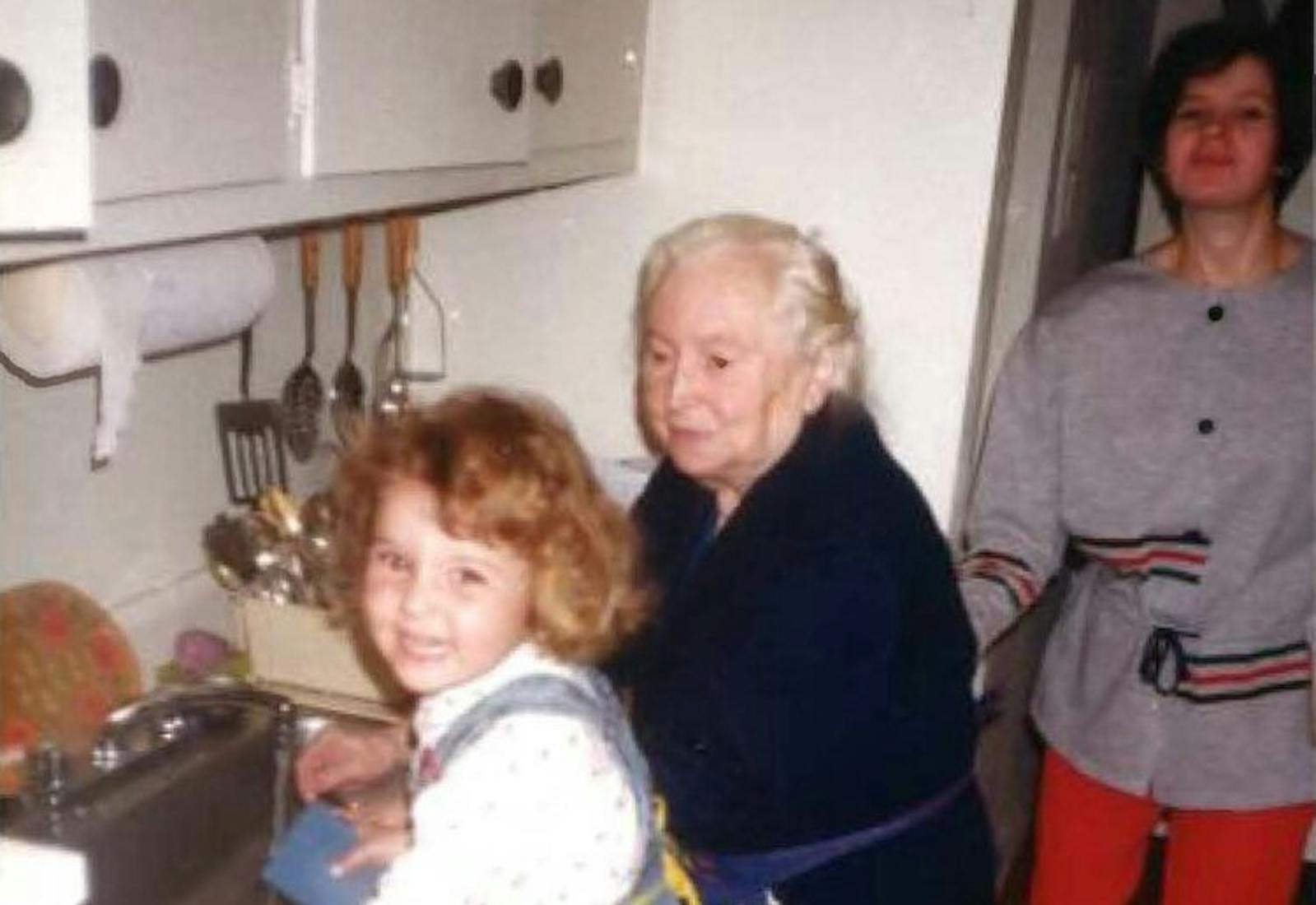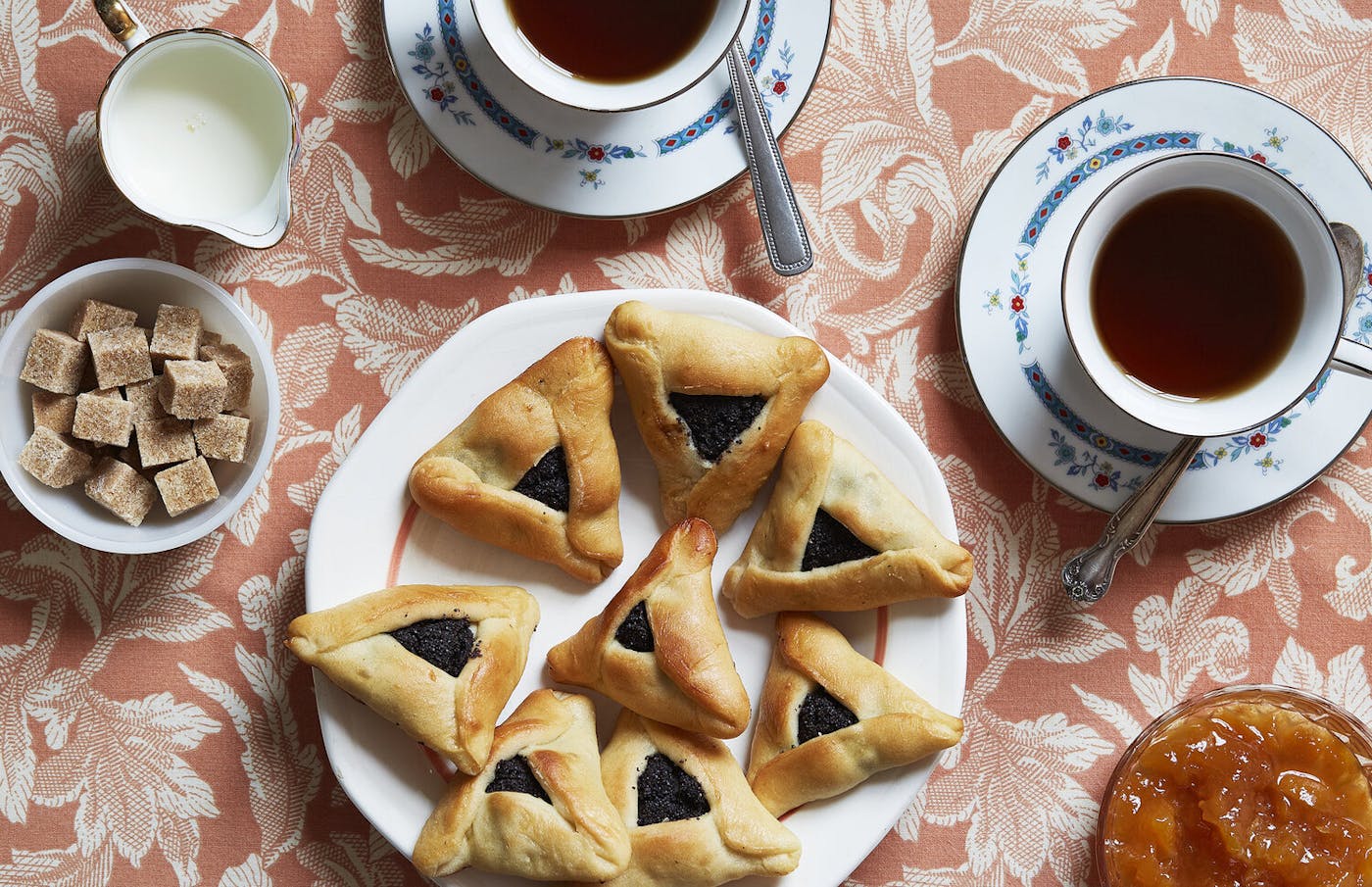Shared by Maria Geyman


Svetlana Geyman’s childhood in Kyiv in the late 1960’s and early 1970’s was quietly laced with Jewish traditions. Her grandfather would pray secretly at the one temple in the city, and holidays were celebrated privately at home. Svetlana remembers her mom going to the temple before Passover to pick up matzo, which she carried home in a pillowcase — perhaps to conceal it, Svetlana says, though no one is certain why.
When Svetlana was 10 years old, her grandmother Perel, known in the family as Baba Pola, came to live with Svetlana and her parents. “She cooked for every holiday,” Svetlana says. There was matzo ball soup for Passover and honey bread for Rosh Hashanah. For Purim, Perel made poppy seed hamantaschen with a special yeasted dough. Some of the cookies were enjoyed in their home with tea, while others were given out discreetly to neighbors, relatives, and other Jewish friends. “We were very private,” Svetlana says. “We did not advertise [that we were Jewish].”
Svetlana would help her grandmother with the baking, hearing stories of Purim in her grandmother’s hometown of Ruzhyn, a few hours from Kyiv. “[My] grandma always used to say that when she was little when they [were growing] up in Ruzhyn, adults will give them a little bit of money,” she says. “I know here people buy presents for Purim or they make costumes. I never heard about it in the Soviet Union.”
Maria, Svetlana’s daughter and Perel’s great-granddaughter adds: “A lot of the Jewish traditions were a little lost, just because of the political climate. And, so, my great-grandmother’s generation was the last one to do the traditions and celebrate the holidays.” The family hamantaschen recipe was nearly one of the things that was lost to the era.
Maria and her parents moved to the U.S. in 1989 and Perel followed two years later. Already in her 80s, she no longer baked hamantaschen. In Brooklyn, where the family lived, food became the marker of Jewish holidays, says Maria. Her mom would set out apples and honey for Rosh Hashanah and at Purim, she would buy poppyseed or apricot hamantaschen.
This winter, for the first time, Svetlana recreated her grandmother’s hamantaschen, serving them alongside her grandmother’s tea set. Tea looms large in the family. “We drink tea three times a day,” says Maria, who founded the artisanal company Masha Tea. “The actual practice of drinking black tea has always been part of my life.”
Like her mother, Maria plans to make the hamantaschen recipe for Purim this year. The recipe’s revival comes at a poignant moment in the family. Svetlana’s mother recently passed away from COVID-19. Maria adds: “I can tell that it’s just really good for my mom to look back and have all of these positive memories.”
